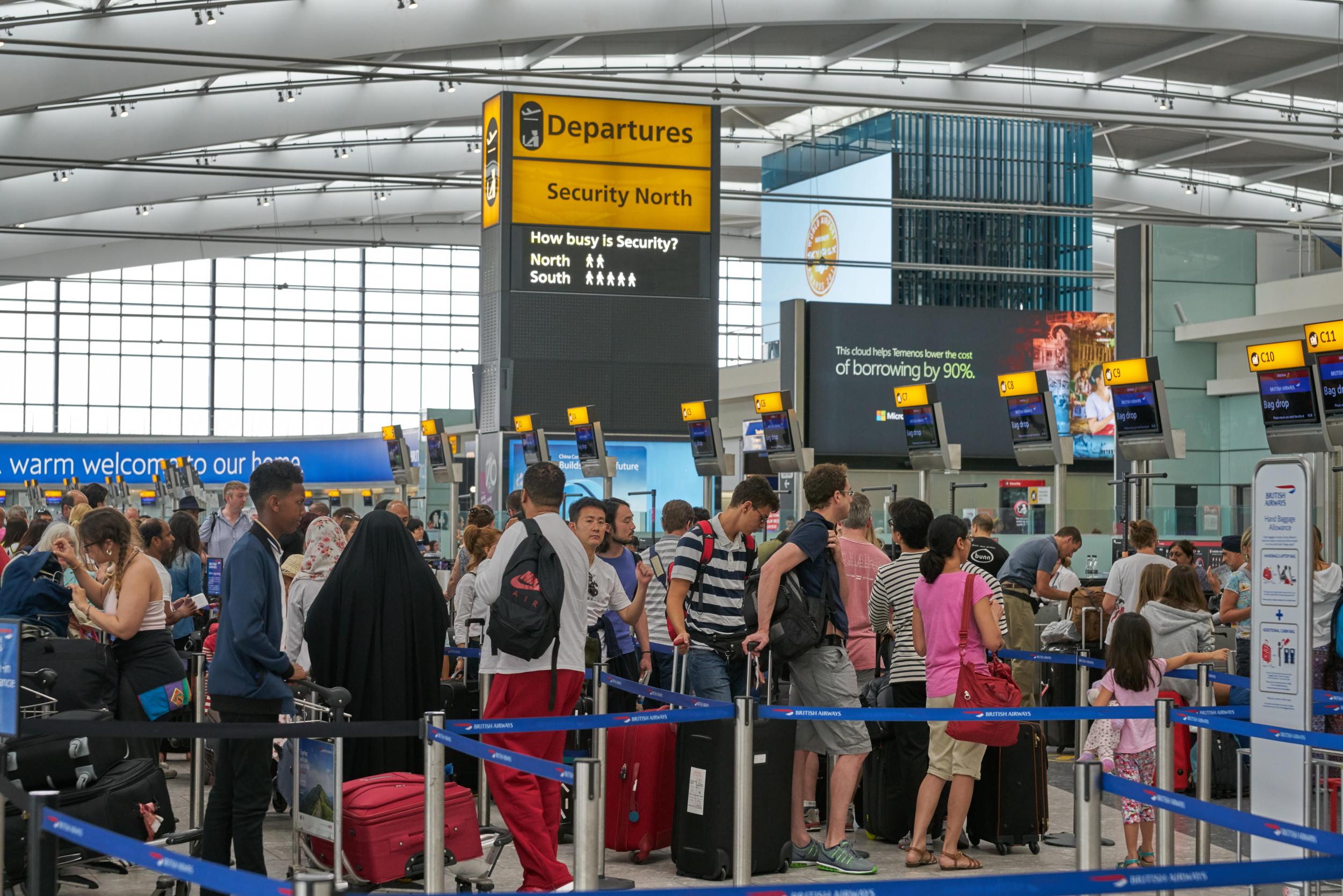How to avoid getting detained at the airport
‘Being uncooperative, even if you feel you’re being treated unfairly, is likely to result in longer detention’

If you travel frequently enough, you’ve probably witnessed a fellow passenger facing extra screening at the airport.
While additional security measures are usually no more than a mild inconvenience, what happens if you’re formally detained by UK Border Force agents?
After being stopped by four officers while disembarking from a recent flight to London Heathrow, I was curious to find out how to avoid unnecessary delays – and what to do if you’re searched as a law-abiding traveller.
Why some people get detained by Border Force
Checking the UK government website before you travel for the latest rules on what you can and can’t take through the airport should ensure a smooth journey.
Beyond that, security services are vague about what raises suspicion, recently widening their powers to stop, question and detain individuals under the Counter-Terrorism and Border Security Act 2019.
If you’re detained while leaving or arriving into the UK, it’s likely either random, due to prior intelligence or a result of observations made by an official. Immigration status can also play a part, as well as customs aspects, such as import and export issues.
“In customs cases the most common reasons are drug related offences that I come across, for example the passenger is suspected to be a drug mule,” said lawyer Gabor Nagy, a director at Duncan Lewis specialising in customs and immigration cases.
“The indicators I have seen through perusal of officers’ handbook notes vary. Some reveal behavioural indicators – a passenger being evasive, being inconsistent in their answers or sweating profusely.”
These indicators could be harmless if you’re a nervous flyer or that sleeping pill from the long-haul flight hasn’t worn off yet, but don’t be surprised to get a tap on the shoulder if that’s the case.
Prior intelligence can also get you detained, even if you’re totally innocent. Visiting certain countries, taking unusual flight routes and last minute ticket changes are known to prompt extra checks.
I wasn’t told why I’d been stopped during my own encounter, but was asked about visiting Indonesia in 2017 and why I’d flown from Sydney to London via Los Angeles – the “wrong” way, apparently.
So-called “watch lists” exist and countries often share intelligence. If you’re in the unfortunate scenario of being repeatedly stopped but haven’t done anything wrong, Nagy suggests contacting Border Force to obtain a free copy of information held on you under the General Data Protection Regulation (GDPR).
“The information will be heavily redacted but is invaluable as a first step,” he explained. “A complaint should then be lodged with Border Force. I have had many successful cases resolved this way, where Border Force was able to remove the stop indicator from the warnings index that officers at primary control points see when they process passengers.”
It’s also possible to contact your local MP, who can help rectify the situation with the Home Office.
Your legal rights if stopped at the airport
If you do get stopped, it’s important to remain calm. Being uncooperative, even if you feel you’re being treated unfairly, is likely to result in longer detention and, in extreme cases, prosecution that carries a three-month prison sentence and/or a fine of up to £2,500.
You can always lodge an official complaint afterwards, including for any belongings that are damaged during the search.
Joking around with officers is never a good idea, even if they appear friendly, but you shouldn’t be afraid to ask reasonable questions.
Nagy suggests asking which act you’re being detained under and requesting a copy of any relevant documents, as well as noting the officer’s identification number.

The Customs and Excise Management Act (CEMA) 1979, for example, permits officers to question passengers regarding their baggage, including electronic devices, where there are reasonable grounds to suspect a prohibited item is being imported.
During my own search, I was initially restricted from using my phone, although officers eventually allowed me to make a call when it became obvious I probably wasn’t running an international drug cartel. Border agents can also make calls on your behalf if you need to notify family, or feel you may need a lawyer.
A bag swab and search is often the first step, which doesn’t require any legal rights to be explained in advance. A record of the search and any findings will likely be kept by officers and if anything is seized, even as simple as excess tobacco or alcohol, you’ll be given a seizure notice.
“Where the search moves onto a search of person (SOP), the passenger needs to be notified of their right of appeal against the search prior to and they also need to be given a copy of the SOP record form (BOR1412) post search,” Nagy said.
Ultimately, very few people detained are found to have actually broken the law, so you should be prepared for additional searches even if they aren’t random.
My own detention took about an hour and I was soon frantically running to catch my onward flight to Manchester in scenes straight out of Airline.
Remember, if you miss any connecting flights while being detained, Border Force isn’t liable but will normally work with your airline to get you rebooked.
Join our commenting forum
Join thought-provoking conversations, follow other Independent readers and see their replies
Comments
Bookmark popover
Removed from bookmarks